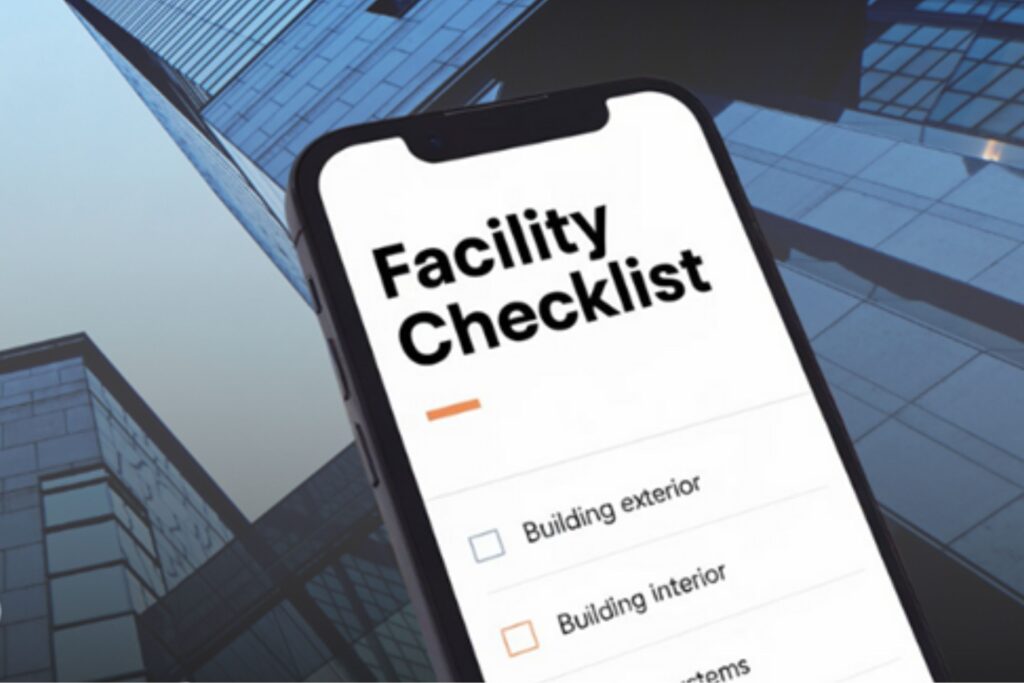In the rapidly evolving world of facilities management, the ability to adapt to modern technologies is critical. Traditional management strategies—relying on manual processes, paper-based checklists, and cumbersome software—are no longer enough to keep up with the pace of today’s facilities. To stay ahead, facilities managers should consider embracing artificial intelligence (AI)-powered micro apps to streamline their operations and ensure efficiency.

In this article, we’ll explore how micro apps and AI-driven checklists are transforming facilities management, as well as why your strategy might be outdated if you’re not yet on board.
The Power of Checklists in Facilities Management
Checklists have always played a central role in facilities management. They ensure that tasks are completed on time, according to standard operating procedures (SOPs), and help maintain accountability. Whether it’s routine inspections or complex maintenance operations, checklists ensure consistency across the board. However, manual checklists come with limitations, including difficulty tracking, updating, and verifying completion. That’s where AI-driven checklists come in.
AI-Driven Checklists: A Smarter Approach
AI-powered platforms are revolutionizing how checklists are created and managed. Instead of manually designing and updating checklists for each task, AI automates the creation of dynamic, purpose-built checklists, often deployed as micro apps. These checklists align directly with your SOPs and can be customized for any task or scenario, all while keeping digital records.
AI not only makes checklist creation faster but also smarter. It can predict task needs based on historical data, automate follow-ups, and generate real-time reports. These checklists can be quickly deployed across teams and locations, ensuring that the correct procedures are followed and documented, reducing errors and increasing compliance.
What Are Micro Apps?
Micro apps are small, task-specific applications that allow facilities managers to focus on individual operations in a streamlined, efficient way. Unlike traditional software, which tries to address a wide range of tasks with a single system, micro apps are purpose-built for one specific job, such as logging inspections, submitting maintenance requests, or completing a checklist.
Benefits of Micro Apps
Micro apps are part of a larger strategy to simplify and modernize facilities management. Here are the key benefits of adopting micro apps in your facilities management strategy:
- Go Digital Step-by-Step: Micro apps allow facilities managers to transition into digital processes gradually, without overwhelming teams. Rather than overhauling entire systems at once, you can start small—digitizing individual tasks—and expand from there. This step-by-step digital transformation helps ease the burden of adoption and reduces disruption.
- Fail Fast, Test Fast, and Drive Adoption: The micro app philosophy encourages experimentation. Since these apps are lightweight and easy to deploy, managers can test different approaches, learn quickly from mistakes, and optimize workflows. This “fail fast” mentality helps drive faster innovation and quicker adoption of digital tools across teams.
- Easy-to-Use, Purpose-Built Task Apps: Micro apps are designed for simplicity. Each app focuses on a single task, making it easy for teams to understand and use right away. There’s no need for extensive training or complex onboarding—teams can adopt micro apps quickly and start seeing benefits immediately. This reduces training time and increases overall productivity.
- No-Code Tools Promote the Micro App Strategy: Micro apps are often built using no-code or low-code platforms, empowering facilities managers to create, modify, and deploy apps without needing technical expertise. This democratizes app creation and ensures that digital solutions can be developed and refined by the people closest to the problems, without relying on IT teams.
Hidden Benefits of Checklist Micro Apps
Checklist micro apps combine the strengths of digital checklists and micro apps to deliver several hidden benefits:
- Increased Accountability: Since every step is digitally tracked, checklist micro apps create a clear record of who completed which task and when. This increases accountability across teams and ensures that tasks are completed in compliance with SOPs.
- Instant Reporting: Checklist micro apps automatically generate real-time reports, complete with GPS locations, timestamps, and even photos if necessary. This data can be shared with management or clients instantly, ensuring transparency and building trust with stakeholders.
- Improved Compliance: With every action documented digitally, audits and compliance checks become seamless. Checklist micro apps ensure that every task is completed according to regulations, with digital proof ready for review at any time.
- Proactive Issue Detection: AI-driven checklist micro apps can analyze data to identify trends and flag potential issues before they escalate. For example, if a certain asset consistently shows signs of wear, the app can alert facility managers to schedule proactive maintenance, preventing costly downtime.
- Seamless Integration into Existing Systems: Micro apps, including checklist micro apps, can easily integrate into existing systems without disrupting your entire workflow. They work alongside your current tools, improving efficiency without the need for large-scale system changes.
Summary
If your facilities management strategy still relies on outdated, manual processes, now is the time to modernize. AI and micro apps are the future, offering a smarter, more flexible way to manage your operations. By adopting a micro app strategy, you can digitize processes step-by-step, fail fast and learn quickly, and drive adoption with easy-to-use, purpose-built tools.
Micro apps, powered by AI, allow facilities managers to maintain compliance, ensure accountability, and optimize workflows—all while reducing costs and complexity. The result is a more agile, efficient, and future-proof facilities management system.
Ready to take the first step towards modernizing your facilities management strategy? Start small with AI-powered micro apps and see the difference for yourself.
Jason Davis is a senior manager at Axonator Inc., a developer of no-code mobile app solutions.
